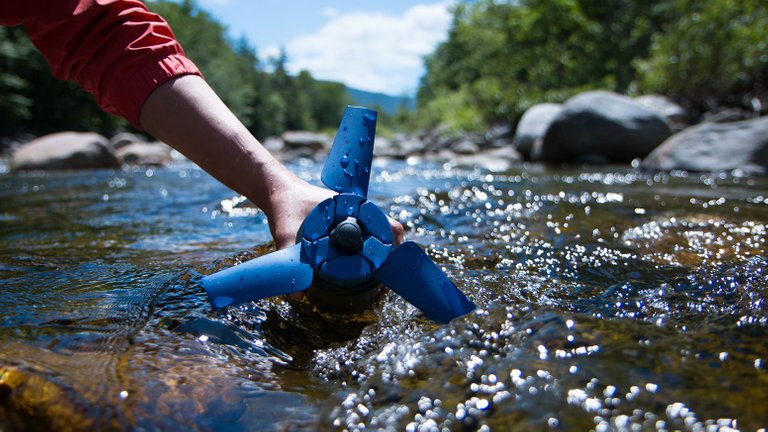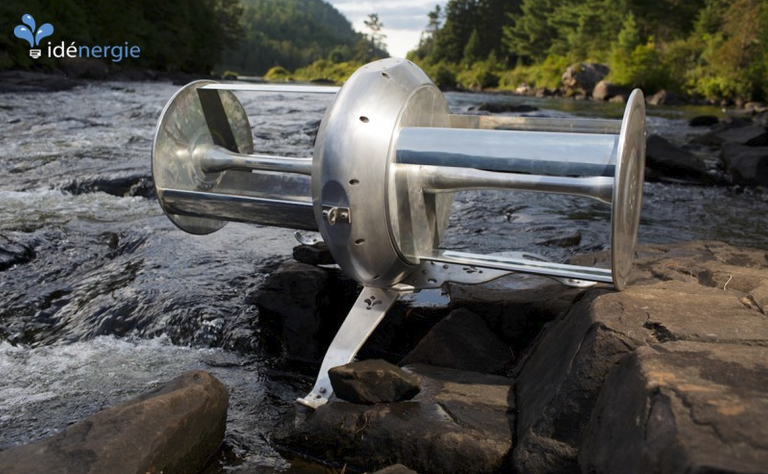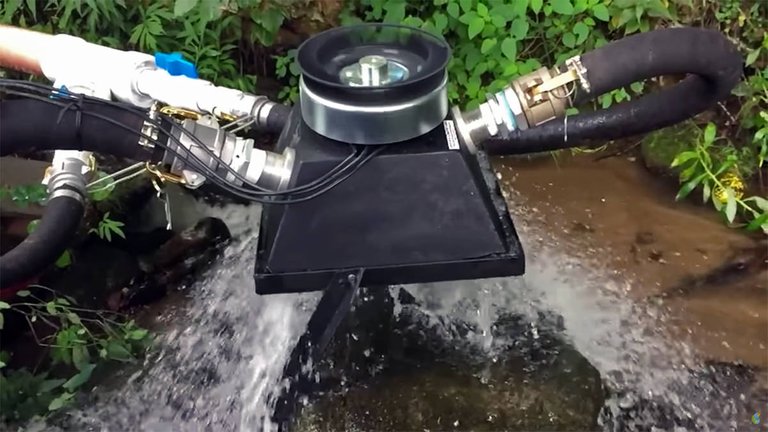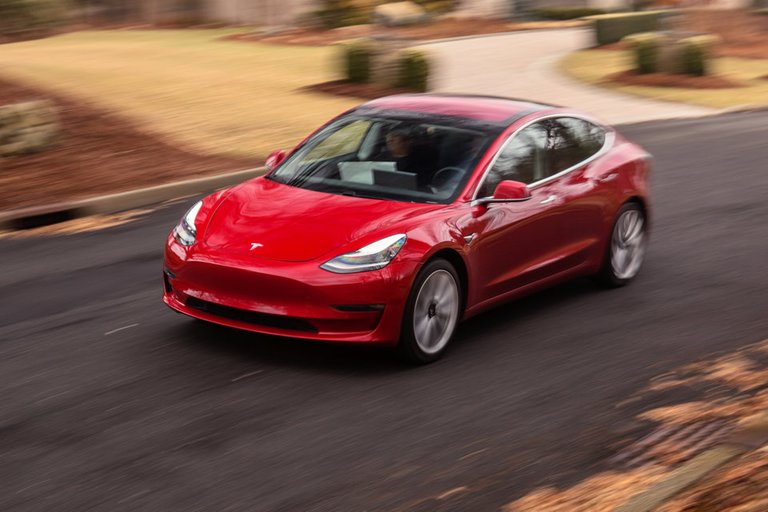What if I told you that you could power your home in a totally environmentally friendly way...with no drawbacks? Solar power is great, but the sun isn't always shining. Wind is great, but the wind isn't always blowing. Not to worry, there's a solution that's superior to both wind and solar.
The one caveat is that you must have moving water on your property. That's a pretty big filter which prevents most people from utilizing micro hydro to power their homes. However, homesteaders looking to land to buy are in a unique position to choose land based on the suitability for hydro power and other factors relevant to off-grid living.
If you're in that position, the value of having access to a river or creek passing through your property cannot be overstated. Unlike solar or wind, hydro power is not intermittent. Save for the possibility that the creek will dry up in the Summer, but then again if you have solar panels as well, that time of year is when solar performs the best anyway.
Providing also that the creek does not freeze in the winter, for all but the Summer months, you will have continuous, uninterrupted power. Lots of it too! Being that water is 700 times denser than air, a hydro turbine outputs considerably more power than a wind turbine.
Rather than start at the high end, this article will examine the options for small format hydro power from cheapest to most expensive. The output of each increases accordingly with price for the most part.
EStream is a recently kickstarted project involving a fold-away backpacker's turbine. It does not send power to shore over a cable as you might expect however. Rather the entire device is sealed with an O-ring, but can be unscrewed after you remove it from the water.
Inside is a modest battery pack which is charged by the spinning blades when submerged. This is not a really useful amount of power in my opinion, exacerbated by the inconvenience of having to remove the entire unit from the water to use it, or even just to check on the charge level.
Still, it could be useful as something to drag behind a sailboat. It would slow you very slightly but also give you a guaranteed source of emergency power for a cell phone/GPS if the sun and wind aren't cooperating. For $250 it might be too pricey to buy as an experiment, but for certain use cases I can see the utility.
Canadian company Idenergie now sells a DIY river/stream turbine suitable for any sufficiently deep, fast moving water. The entire unit submerges, after being secured with a restraint to a boulder or piling so the current does not carry it off. A cable carries the power back to shore.
It outputs either 24 or 48 volts DC (selectable) just like many small solar arrays common on cabins, and the rated output is between 100 and 500 watts depending on water speed. That may seem paltry, but don't forget that it's constant output, even at night.
While the ads say you can "power your house!" with it, in fact you would need either several of these (at $10,000 including installation) or you would need a very small home with 12v DC appliances and no heating or cooling. The ideal application I can see for this unit is as a supplement to a rooftop solar array.
The range of fixed installation creek and stream turbines made by Powerspout, such as the Turgo (pictured above) represent the next step up. They are permanent installations and non-submersible. You drill the supports into a rock, and pipe the intake water from as high an elevation as possible, with the output hose leading to the lowest point of the creek or stream (within the boundaries of your property).
Maximizing elevation difference is the key to maximizing the power output of this type of turbine. They can output in excess of 1 kilowatt, putting them in a league above semipermanent turbines like the Idenergie unit discussed earlier. However that relies on optimizing the setup.
Besides the elevation difference, you also need to ensure the input trough is fully submerged and has a filter to keep out debris. If it's not fully submerged, bubbles will get inside, causing cavitation on the ends of the turbine blades which reduce efficiency.
Of the turbines discussed so far however, this is by far the best option unless it's a full blown river you live on, or there's not a significant elevation change. If it's just a creek or a stream, and there's a significant elevation change in it, this is the type of turbine you want.
These units utilize essentially the same type of charge controller as a solar array, but of course the output is non-stop. This makes them incredibly valuable. Even while you're sleeping soundly, it's still out there by the creek, spinning madly, recharging your house batteries.
These also have fewer issues getting approved for installation than the submersible turbines because they represent less of a danger to fish. It's less trouble, then, to install several of them in parallel on the same creek or stream. Conceivably, it's possible to fully power your home with no need for batteries.
Realistically you would want batteries though, for a reliably stable output and to collect energy from rooftop solar panels or any other sources of power you might wish to add later on.
At $1,600 it's not only more powerful than the Idenergie, but also suitable for DIY installation. Of course the two are intended for different situations, one for rivers and the other for creeks/streams with an elevation change, so really it's apples/oranges.
If you're able to get ahold of a parcel of land with a creek or stream on it, and there's a significant elevation change between where it enters your property and where it leaves it though...you're sitting pretty. You are ideally situated to generate a copious amount of renewable power with a reasonably priced turbine.
That's the rub when it comes to hydro. It's beautiful and amazing where it works. But of course, it won't work just anywhere. It needs specific conditions, and you basically have to make your selection of land to purchase with hydro in mind if you're ever going to be able to use it.
Armed with this information, anybody reading this with serious plans to buy land and homestead on it in the coming years now has an additional criteria to judge land by. I'll wager you're now rubbing your chin, re-evaluating the land you were considering and browsing for properties with access to moving water.
Of course, there's always the possibility of building your own such turbine using a high output alternator...but that's a topic for another article. :)
Citations:
https://www.kickstarter.com/projects/hyerinster/estream-a-portable-water-power-generator-fits-into
http://idenergie.ca/en/
http://www.powerspout.com/
Stay Cozy!



Hmm, I will have to look into these. The Powerspout in particular looks promising. We have a small but year round stream on our property and something like this may be possible.
Lucky you, if so. There is no better form of off-grid energy. The powerspout needs an elevation change to work, is one end of the stream higher than the other? If not, then you could always build your own solution from a high output alternator and a geared water wheel. There's a lot of options for generating power from moving water.
I don't think there is that much elevation change ( I have never measured) but there are places where the water seems to be moving fairly briskly so maybe some sort of water wheel would be a better option. I noticed that the powerspout web page had a calculator. Will have to plug some numbers into it when I have some time and see if it would be a feasible solution or not.
This is an excellent way the first time I hear it Thank you, hero, that of your follower I have joined Magdad Greetings
I definitely think that Hydro power is great, very clean and with a high energy return. It's much cheaper over the long term as well. However, hydro power projects need very specific sites, which is for me unimaginable living in the big city. I would have to move back to my grandma who has strong rip small river right in her backyard. Great and educational post though!
Perhaps it would be a nice project to reduce your grandma's power bill, then.
I am a graduate of electrical engineering and I have never thought of sustainable power supply this way before . I love the analysis you gave but I think this wiuld be limited to just a few persons who live by the river or stream .
You talked about the output being quite paltry but if this is incorporated with an inverter and a battery which you can use while charging, then I think you would be able to power your whole house comfortably. What do you think?
The output is actually better than most solar panel setups. The last one on the list outputs up to 1.6 kilowatts. Rooftop panels typically output no more than 250 watts each (under ideal conditions), and the cost of arrays with lots of panels adds up quickly.
Alex - I don't know much about this technology... But hydro power is the main source of power generator of my country...
+W+
Good for you, hydro is the most powerful form of renewable energy. Where I live, 40% of our electricity comes from hydroelectric power thanks to a couple of very large dams.
Can I fly to the space with that thing? It really looks like a breakthrough in quantum dynamics and Kamasutra energy saving.
Wow, this is one nice piece of tech.
I have heard of small hydro power but i have not really seen one.
That's obviously something that I would need to try myself :D
Do I need it? No! But do I want it? Hell yes!
I am trying to make an off grid green house for a long time (almost 8 years in the making) every year I build upon what I have created the previous year. From water pumping to heating to an electric car, I have everything planned out, I still need the photovoltaic panels and the car :D
I might write an article soon about that.
If you are content with a used Leaf, iMiev or Think City, they can each be had off Craigslist for around $5,000. Or for a little more you could have a Chevy Spark, which will have longer lived batteries.
I am from Europe.

I have eyed 3 variants:
Volkswagen e-UP
Smart Electric:

Tesla Model 3:

The first two are city cars, with the last one being a distant dream ( but it would cost roughly the same as the others) :)
In Europe we are being given 10.000 Eur discount and 0 tax for buying electric. So all of these cars are under 20.000$. For Europe this is good.
And our fuel cost is 5.44$ per gallon :)
Any electric car you buy, make absolutely sure it has a TMS (thermal management system) for the batteries. Air cooling is not enough, it must be liquid cooling.
Liquid cooled batteries have a much, much longer overall lifespan than passively air cooled batteries, as shown by the drastic difference in range loss over time between the Leaf and Volt (or early Teslas).
The Leaf being the TMS one? I will look into it, thanks!
Nice one @alexbeyman,
As coincidental as it may sound, I actually wrote a exam to on Applied Fluid Mechanics (a mechanical engineering course) today and guess what, it was more the hydro turbines, I can go on and on with their advantage types and lots more, the comment section won't contain me :)
Hydro turbines are a very good energy source and I think there should be investment in the creation of Hydro generated power as its advantages are so much to be overlooked.
Its nice you brought it up here, thanks for sharing.
Indeed! Out of all forms of renewable energy, only geothermal and hydro produce continuous, uninterrupted output.
Well a nice innovation, converting hydraulic energy into the electrical energy is an old concept but it has large applications in most of the cases, I really loved this innovation small sized turbine in your hand which can convert hydraulic energy into the electrical.
man we dont even get to see flowing water
i wish i was living close to any such place
bdw great article
I've read it and then asked myself How does it work again? :D
Jeez, I'm just incapable of understanding technology :-O
Never thought about that.
How awesome! I’m a huge fan of sustainable power production. I used to know a woman who was generating electricity in her backyard with a small hydro unit. Thank you for the post! Informative 👍
This is a great innovation, but I think it is severely limited due to access to rivers and streams. Not like solar energy. Still, it is very cool to see!
For the right area, that is a great energy choice. Constant recharge of batteries, would be a real winner.
Hydraulic energy has endless possibilities of use.
Indeed this is a very good innovation but as you said,you have to be among those,who are lucky enough to live by a river or creek
post that is highly educated. I love to read it because this is part of my science. we are currently making research proposals about this with colleagues in electro. is now looking for a location for this project. with this writing has added to our knowledge. thanks alot mr @ alexbaymen for this information.
regards
Several homemade hydropower are now being made and its been saving quite a lot of electricity bills.. But there are several factors that could affect hydro power such as rainfall, the topography and severe weather conditions.
A company actually tested hydro turbines in a river next to my hometown and they got phenomenal results. I guess they wouldn't count as micro but still they were like max 2 meters long. The company promised a better output than photovoltaic systems with just little more investment costs. The only downdraw is you need to own a part of the river since they only allow to place them on private property.
Where the hell from do you come up with these ideas.... Time to find some some property where running water flows... Anyways leaving everything aside.... It has a drawback... During harsh winter these small streams get freezed.... And the sun too is not helpful... That time what could be the alternative if there is no electric line through the plot?
You have already stated that son isn't always shining and wind isn't always blowing but you know not everyone lives by a river. But this sure is a great way to generate power. Hydro electricity is is an awesome deal. But may I ask as you is the amount of electricity generated enough to power up the house. I mean how good is the output of the project?
Very interesting post buddy.In fact all of your posts are awesome.
Now a days alternative power source is the matter of concern.Because stock of fossil fuel is coming to an end.Now people have to think about all the alternative such as wind,solar,water and some other.Water electricity can be a great source of power.Because there is always problem with sun and wind,but there is no problem with water.Thanks for the post.
wow experiments that already have visible results from the system's contents system have been watered out, and this is your job, and you are creating new discoveries and should get the copyright. goodbpost @alexbeyman
hello good-bye again, amazing design, for a water pump machine in this there is ketetkaitan with the previous post, about the drink mix, and you want to try to make pipanisasi so steemit friends can feel the drink from your concoction, though not to your house, sangay good idea that you pour into your post. thanks from @boile.
and hopefully your experiment is perfect and get maximum result.
haloo @alexbeyman happy to innovate and greetings know me as a beginner happy to meyapa you. https://steemit.com/introducemyself/@jidarr/first-episode-01-introduction-to-self-and-hobby-9d4230da5118d
Technology growing for such of creativity person . Impressive innovation..Innovation only survives when people believe in their own ideas.
Great innovation.
helpfull post!
wow .. a cool post
Great post it's really amazing thanks for this great informative post .
information is very useful, I so know this. thanks @alexbeyman
Your post is golden.. i think post might have its advantages as well as thanks for sharing
Can we use this idea of harnessing the ocean wave energy for rivers as well?
http://www.sciencedirect.com/science/article/pii/S2211285518301125
It is a nano generator that gives 8 microwatts each. On a sufficiently large scale, if efficiency turns out to be fair enough, we may not even need the turbines. What do you think about it?
That's what this article is about. River, creek and stream turbines. It does not discuss oceanic power.